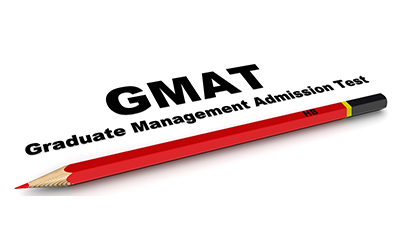With less people taking the GMAT, what is happening to the top of your funnel?
 The GMAT was once seen as the gold standard in higher ed — a way to predict success of prospects in an MBA program, a determinant of quantitative skills and a judge of work ethic. And because of the test’s reputation and its status as a key gatekeeper for prospective students, many schools have been using GMAT test registrants to populate their databases for years. Due to the pandemic and recent market shifts, the GMAT is on the decline, and along with it, its ripe list of registrants. So what can schools do that have relied on this test for so long?
The GMAT was once seen as the gold standard in higher ed — a way to predict success of prospects in an MBA program, a determinant of quantitative skills and a judge of work ethic. And because of the test’s reputation and its status as a key gatekeeper for prospective students, many schools have been using GMAT test registrants to populate their databases for years. Due to the pandemic and recent market shifts, the GMAT is on the decline, and along with it, its ripe list of registrants. So what can schools do that have relied on this test for so long?
The GMAT is on the decline
In today’s market, there are several reasons why GMAT is on the decline, according to a recent article in Poets & Quants:
- Fewer schools than ever before are requiring it, due to the upheaval the pandemic has caused on test-taking in general.
- The GMAT is losing market share to the GRE; where tests are required, the GRE is quickly growing in popularity as its at-home version had a smoother rollout during the pandemic. It’s also less expensive.
- Currently more than two-thirds of B-schools in the U.S. now offer some form of waiver. And of the top 50 programs, 32 now offer applicants a path to avoid taking a test all together. That number is growing as the pandemic stretches on.
- Schools that previously required the GMAT and waived it during the last admissions cycle are having trouble justifying a return to stringent test requirements.
So what is this doing to the top of the funnel?
Quantity
Schools that relied heavily on purchasing GMAT registrant names to populate their databases and mailing lists are seeing less availability of qualified leads. Although fewer test takers don’t necessarily equal less interested prospects, it is a disturbing trend in higher ed that marketing and admissions departments across the country haven’t yet figured out.
If your school falls in this category, here are a few potential solutions:
- Expand your name purchase strategy to include competitor tests like the GRE.
- Develop and expand your lead generation campaigns to target those who frequent admissions sites like Poets + Quants and rankings websites.
Quality
Schools that previously relied on a minimum GMAT score to determine candidate viability may be having trouble gauging prospects’ qualifications. There are many schools that have devised specific formulas to predict students’ success in the program based on certain quantitative scores, especially for programs with a heavy finance and accounting curriculum. In addition, other schools see the GMAT as being extremely rigorous and use it as a way to gauge prospects’ commitment to studying for the test and potential work ethic that will help them succeed in the program.
If your school is struggling with finding ways to gauge lead quality due to the GMAT decline, here are a few potential solutions:
- Develop a new set of criteria to establish a baseline of requirements.
- Determine a new way to gauge commitment, like a test developed by internal faculty.
- Review the success of the students admitted in the past admissions cycle against the students’ performance from the previous 2-3 years. Determine what differences there were.
- Find a way to bring perceived lagging students up to speed with a class prior to being admitted or starting the program.
There are many ways that schools can overcome the shifts that have been caused by the pandemic, but it can be extremely difficult to overcome these challenges, especially when you are in the midst of constant change and a static recruiting cycle.
If your school needs help identifying ways to increase the quantity and quality of your leads, even with the declining GMAT test taker numbers, GPRS can help. Our team has worked with many schools to develop solutions to increase lead activity and grow enrollment. Start the conversation today.

 If you’ve ever purchased an expensive watch, the latest handbag or designer shoes, you hope that the quality is worth the cost. Regardless of your motive for buying a luxury brand – a desire for buying the best, or the ability to show others you have refined taste, the reality remains the same – you were willing to pay a lot of money for something you hope delivers value.
If you’ve ever purchased an expensive watch, the latest handbag or designer shoes, you hope that the quality is worth the cost. Regardless of your motive for buying a luxury brand – a desire for buying the best, or the ability to show others you have refined taste, the reality remains the same – you were willing to pay a lot of money for something you hope delivers value.
